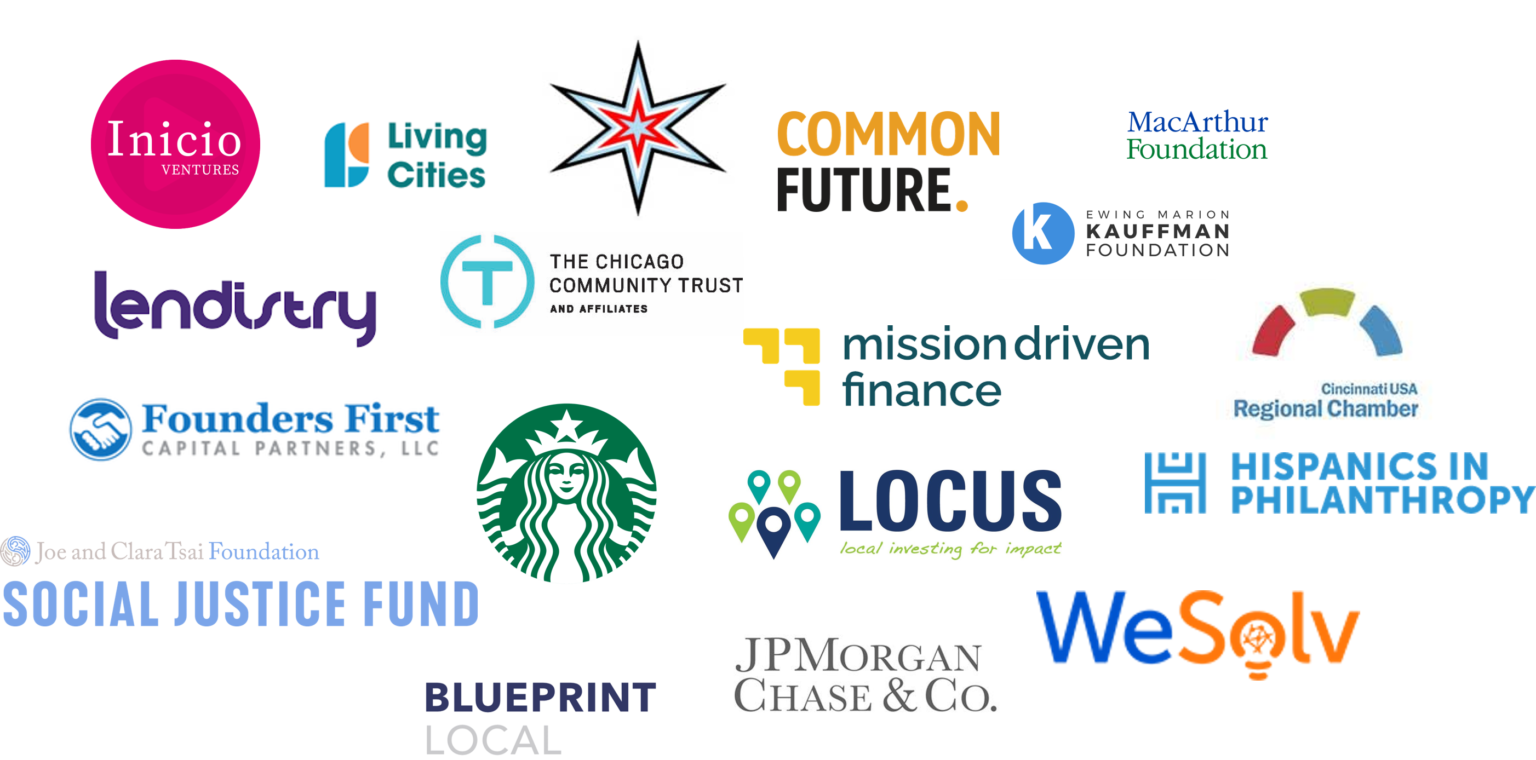Before everyone wrapped up 2021 and headed home for the holidays, Next Street brought together leaders across the small business industry – entrepreneurs, impact investors, grant-makers, small business lenders, and business service providers – to tackle the topic “How Philanthropy and Investors Can Dismantle a Broken Small Business Ecosystem.” Next Street’s Charisse Conanan Johnson, Managing Partner, Stephen Nunes, Partner, and Kristine Michie, External Consultant Partner (through ImpactFull) curated and moderated the series.
Over the course of three days in December, attendees heard from panelists representing organizations from across the small business investment ecosystem to discuss how investing in small business ecosystems can help fix the broken small business infrastructure and close the racial wealth gap.

To set the stage for the 3-day webinar series, we grounded the conversation with quantitative data that highlights the challenges and opportunities related to equitable small business support. We also aligned on a common definition of “equity.”
“Providing access to opportunities, resources, and support for communities of color by intentionally recognizing and eliminating historical barriers, and recognizing current needs, context, and situation. The condition that would be achieved if one’s racial identity no longer predicted, in a statistical sense, how one fares. When we use the term, we are thinking about it as one part of racial justice, and thus we also include work to address root causes of inequities, not just their manifestation. This includes elimination of policies, practices, attitudes, and cultural messages that reinforce differential outcomes by race or fail to eliminate them.” Source: Racial Equity Tools
Day 1: How to develop impact and investment strategies that build equitable entrepreneurial ecosystems
We kicked off the series with a discussion around developing impact and investment strategies that can build small business ecosystems and support entrepreneurs in an equitable way. Panelists shared their perspectives on the goals that various institutions (philanthropy, corporate, government, financial institutions) should set in order to support the BIPOC small business ecosystem.
We first have to ask ourselves – What are the fundamental root causes of the problem? How are venture funds distributing capital? Why do certain groups lack access to capital and services? The goal should be to truly understand the crux of the issue before jumping in to create a solution. – Stella Ashaolu
We also discussed the internal changes at corporations and foundations that have led to record commitments to support BIPOC small business owners. Yes, the panelists admitted that so much more still needs to be done to support BIPOC entrepreneurs. Finally, the panelists challenged the audience to strike a balance between funding existing players and supporting the new innovations that are sprouting each day.
“Breaking out of known networks and ways of doing things is an unnatural act. It must be incentivized.” – Darrin Redus
If you missed Day 1 of our series, watch the recording here.
Day 2: What role should funders play in supporting small business ecosystems and closing equity and opportunity gaps?
The second day of our series honed in on the role of funders in supporting small business ecosystems. We started by examining the role that intermediaries play, including their importance to donors. We quickly dove into challenging topics such as the role philanthropy should play in spurring innovation and taking risks.
“No more excuses – we’re done with ‘there’s not enough founders’, we’re done with ‘there’s more implied risk with diverse founders.’ We need to move past these historical biases and dive into the work versus standing on the sidelines. The infrastructure supporting non-profits exists and as funders we need to do more and be more proactive” – Jorge Calderon
The conversation continued with discussion around other competing priorities, including measuring social returns verus financial return on investment as well as funding direct small business grants versus investing in efforts to make the system-wide ecosystem more equitable. Finally, panelists touched on how philanthropy can spur, challenge, and partner with government-initiated or corporate-backed efforts, and whether philanthropy should actually do so.
“We can’t just program our way out of these systemic challenges. We need to be change makers with a holistic lens that includes investment, policy, built environment and other factors that can help create an enabling environment for entrepreneurs.” – Shandra Richardson
If you missed Day 2 of our series, watch the recording here.
Day 3: Practitioner Exchange
We wrapped up our webinar series with an intimate, invitation-only interactive discussion with practitioners, including impact investors with a track record of investing in small businesses as well as funds actively investing in small businesses with a racial equity lens. We set the context with two panel discussions. The first focused on the tools that funders and investors already have at their disposal to support small businesses, and which they can build or borrow (e.g. through community partnerships). The second explored innovative wealth-building strategies for entrepreneurs and those that support them by highlighting four funds that are deploying non-traditional financial products to small businesses to disrupt the norm.
Between the two panel discussions, audience members broke into small groups to discuss how they could each leverage their organizations’ assets to invest in small businesses owned by people of color, share strategies they have found to be effective, and consider which ideas and strategies would be easiest or hardest to implement. After coming back to the full group, audience members shared the following insights:
It is critical to bring other decision-makers into the decision process and make sure there are new voices that represent our target communities at the table.
We must continue to push our underwriting boxes. Is there an opportunity to prove that there is no need for a credit enhancement?
Intermediaries and CDFIs cannot be the sole answer – they are just one piece of an ecosystem puzzle. We need different players to fill different gaps and take advantage of different opportunities.
Foundations should be creative with figuring out how to use their endowment to be a catalyst for impact and address systemic issues
Patience and relationship-building will be important as we increasingly compete with online and predatory lenders
If you want to be a part of the next conversation, contact us.


